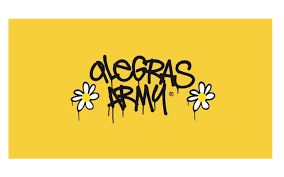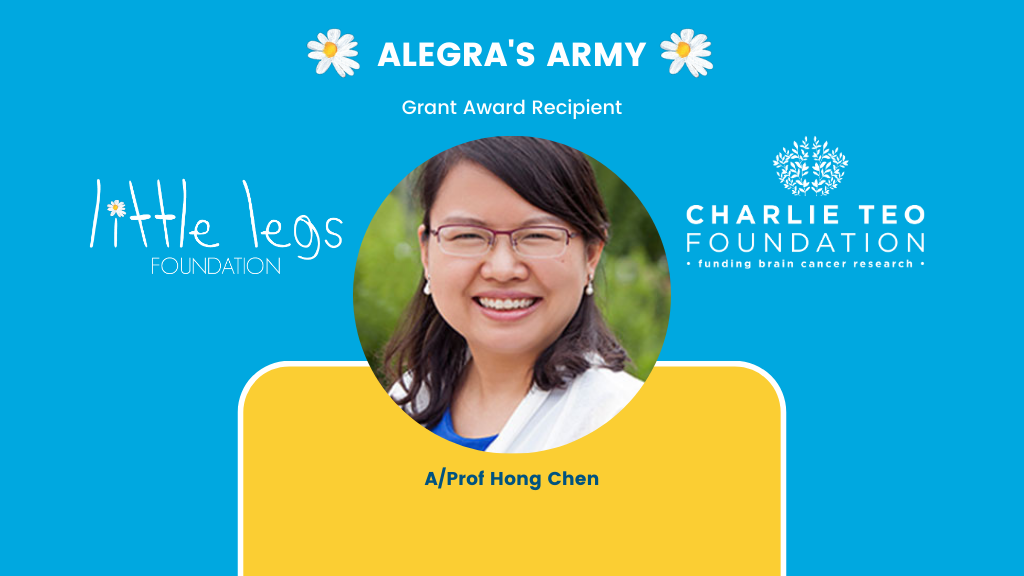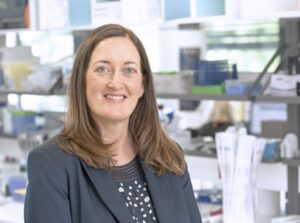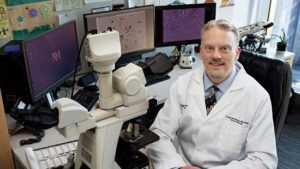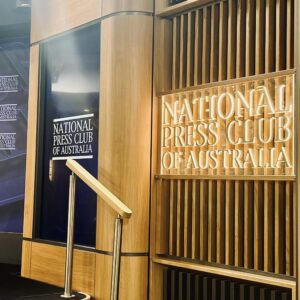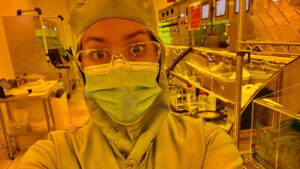26 September 2024
Today is Childhood Brain Cancer Awareness Day. This National day was launched by the Australian Government five years ago to:
🌼 Raise awareness of the impact of childhood brain cancer on patients, family and carers; and
🌼 Focus on the importance of childhood brain cancer research.
On this day five years ago, the Australian Government spotlight the deadliest childhood brain cancer – DIPG (also known as DMG). At the same time the Alegra’s Army Grant was established in partnership between Little Legs Foundation and Charlie Teo Foundation in memory of our little friend, Alegra, who lost her life to DIPG at age 6.
Five years on we are proud that over $1.4 million in grant funding from the Little Legs Foundation has empowered four courageous scientists to push boundaries in their research into DIPG.
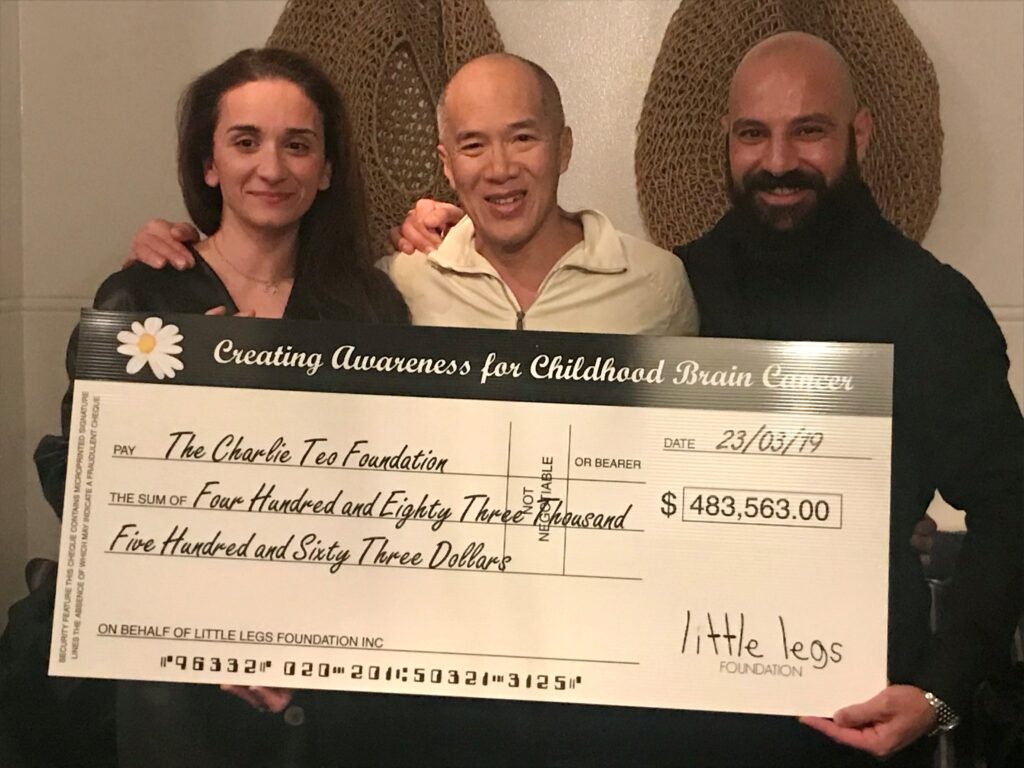
The courageous scientist joining Alegra’s Army
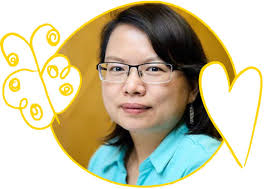
On this special day today, we showcase the impact of one of the first Alegra’s Army Grants of $AUD 714,009 awarded to biomedical engineer A/Prof Hong Chen at Washington University in St Louis, U.S.
Over the last four years the research team developed an effective, non-invasive technique with minimal toxicity to safely deliver drugs directly to the location of the DIPG in the brainstem, paving the way for future clinical trials.
A/Prof Hong Chen is an expert in focused ultrasound. Her passion began as an undergraduate student after a visit to a Chinese hospital where she saw patients lining up for the focused ultrasound treatment. That image remained burned in her mind and she centred her future research career to developing focused ultrasound as a diagnostic and treatment tool for brain cancer.
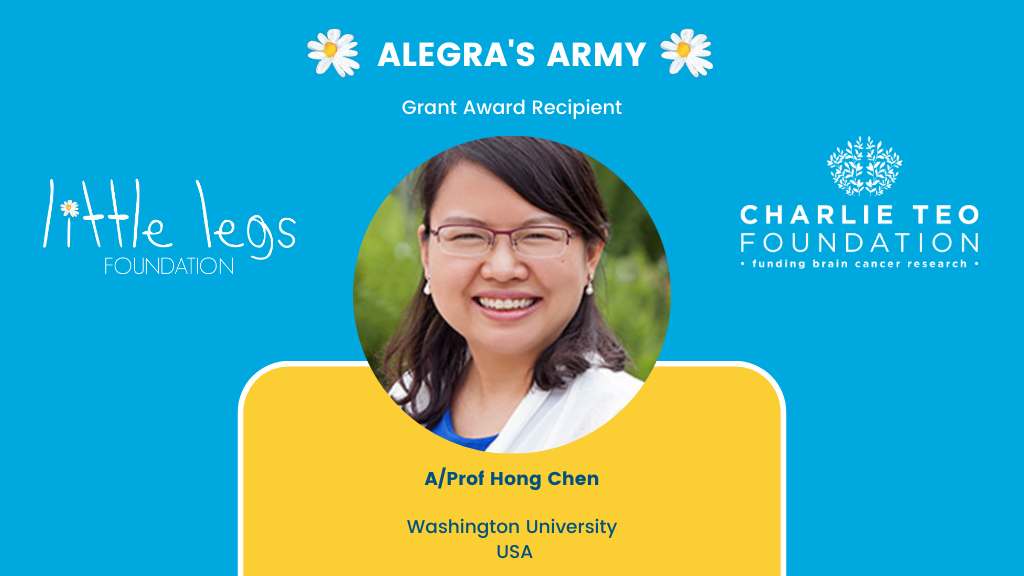
The project awarded through the Alegra’s Army grant explored a new method to bypass the brain’s natural shield (the blood-brain barrier) and deliver drugs right to the tumour and at the exact dose needed to treat the cancer.
This was the first project to develop a nasal spray to non-invasively deliver drugs to the brain. It pairs several technologies – nanoparticles which house the drug – focused ultrasound and microbubbles which directs the drug containing nanoparticles to where they need to go in the brain – all via delivery through the nose.
Read on as we share the remarkable scientific outcomes from this grant. Alegra’s legacy truly lives on.
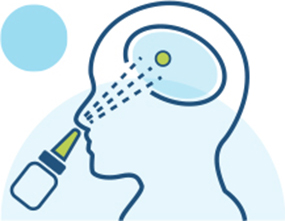
Nasal Drug Delivery to the Brainstem for DIPG/DMG
With the support of a $AUD 714,009 Alegra’s Army Grant funded by the Little Legs Foundation in partnership with the Charlie Teo Foundation, A/Prof Hong Chen and her team have made remarkable progress in the fight against Diffuse Midline Glioma (DMG/DIPG), the most lethal form of childhood brain cancer. Their groundbreaking work has led to six impactful publications, pushing the boundaries of drug delivery methods and offering new hope for patients.
A/Prof Chen’s research focuses on overcoming the blood-brain barrier (BBB), which acts as a fortress and prevents many therapeutic agents from reaching the brain, and delivering therapeutic molecules to regions of the brain that have traditionally been hard to reach.
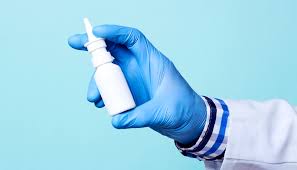
To tackle this, her team developed the Focused Ultrasound-Mediated Intranasal Delivery (FUSIN) technique. FUSIN is unique because it combines a smart delivery route (through the nose) with a targeted approach (using ultrasound and microbubbles) to get medicine exactly where it’s needed in the brain. This method not only avoids the BBB but also reduces the side effects typically associated with systemic drug delivery and can safely target the brainstem. This approach was published in the following three journals (click links below):

Key milestones and achievements
One of the key milestones achieved was the successful development of an intranasal delivery protocol in a large animal model. By using a soft catheter (a flexible tube) and advanced imaging techniques, the team demonstrated that therapeutic agents could be effectively delivered through the nose to the brain. This method was published in the Journal MethodsX.
Another significant achievement was the assessment of FUSIN’s efficiency and safety. The team used focused ultrasound to enhance the delivery of therapeutic antibody molecules to the brain. Think of this as using a magnifying glass to focus sunlight on a specific spot, intensifying the effect, especially in critical regions of the brain required for therapeutic efficacy. The results were promising in animal models, with successful delivery to targeted brain areas and no significant tissue damage, underscoring the safety of the technique. These findings were published:
Impact of Alegra's Army Grant
These advancements mark the first successful demonstration of the FUSIN method in a large animal model with similar skull thickness and brain morphology to humans, paving the way for future clinical trials. Watch A/Prof Chen’s video above as she explains more about this project and its impact.
By enabling non-invasive, precise targeting of therapeutic agents to specific brain regions, FUSIN has the potential to revolutionise brain cancer treatment.
This technique could significantly enhance the effectiveness of existing and new therapies for DIPG/DMG and other brain cancers, ultimately improving patient outcomes.
"I would like to take this opportunity to thank for the support from the Little Legs Foundation and the Charlie Teo Foundation. The support has been really important in helping us gather the necessary information to secure additional funding from the Government to continue this research."
Associate Professor Hong Chen, WashU
